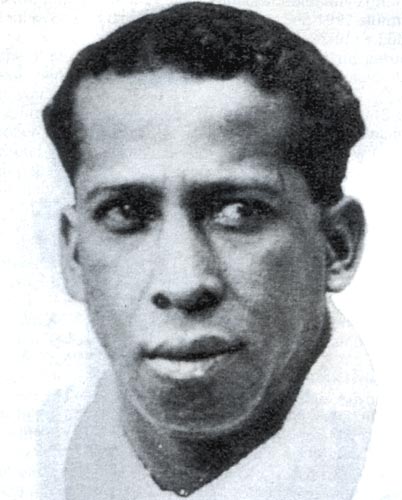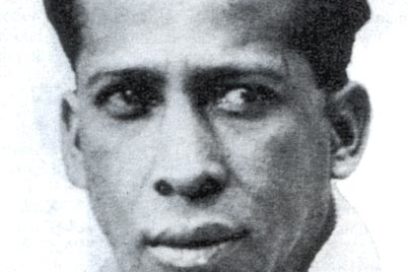 On October 5, 1057, three days after his 56th birthday, Jose Leandro Andrade died in extreme poverty in an old people’s home named Pineyro del Campo in Montevideo, Uruguay.
On October 5, 1057, three days after his 56th birthday, Jose Leandro Andrade died in extreme poverty in an old people’s home named Pineyro del Campo in Montevideo, Uruguay.
He was baptized in Europe as “The wonderful Black”. By then, he just had a bed, a wardrobe and a group of medals kept in a box of shoes, among them two golden Olympic medals and the one in the World Championship Cup in 1930.
A year before, the German journalist Fritz Hack, after a long search, had found him in a basement on Perazza Street with a horrible image. “I found Andrade in a Spartan furniture hovel. He had become an alcoholic man and due to the injures in his eyes, he was almost blind from one side. He could not answer my questions,” he wrote.
During the Olympics in 1928, in the struggles for the semifinals versus Italy, Jose Leandro hit a post in a defensive action and since then, the injury suffered in his eyes will progressively limit his performance in the field.
It is said that even when he started losing sight Andrade made the game easy. He carried the music in his feet and he flooded elegancy on his right side. He was chosen in the First World Cup to be in the All Stars Team.
It was also said he was the absolute owner of his neighborhood, Palermo, where he used to walk at the rhythm of the drums and violins, making history with his excess of fandango, eternal lover of carnivals in Montevideo.
He was born in 1901 in Salto and he played until he was 36. First in Uruguay with the most important clubs, later in Atlanta and the Lemus for Argentina, but he returned home to retire in Montevideo Wanders. He won like little people did and captivated like any one has been able to in his time: three championships of America, two Olympic Games, a World Cup and several domestic cups. But it was not the time for black stars.
Many saw racists’ causes in his speedy fall, and curiously, Andrade was the only one of the players of that magic Uruguay that ended his days in misery. The rest found job as businessmen, journalists or trainers. He was the only one who wondered with neither course nor job, clung to a poor job as public employee until the alcohol, the disappointments, blindness and the carnival, ended with the life of one of the best football players of the 20th century.


